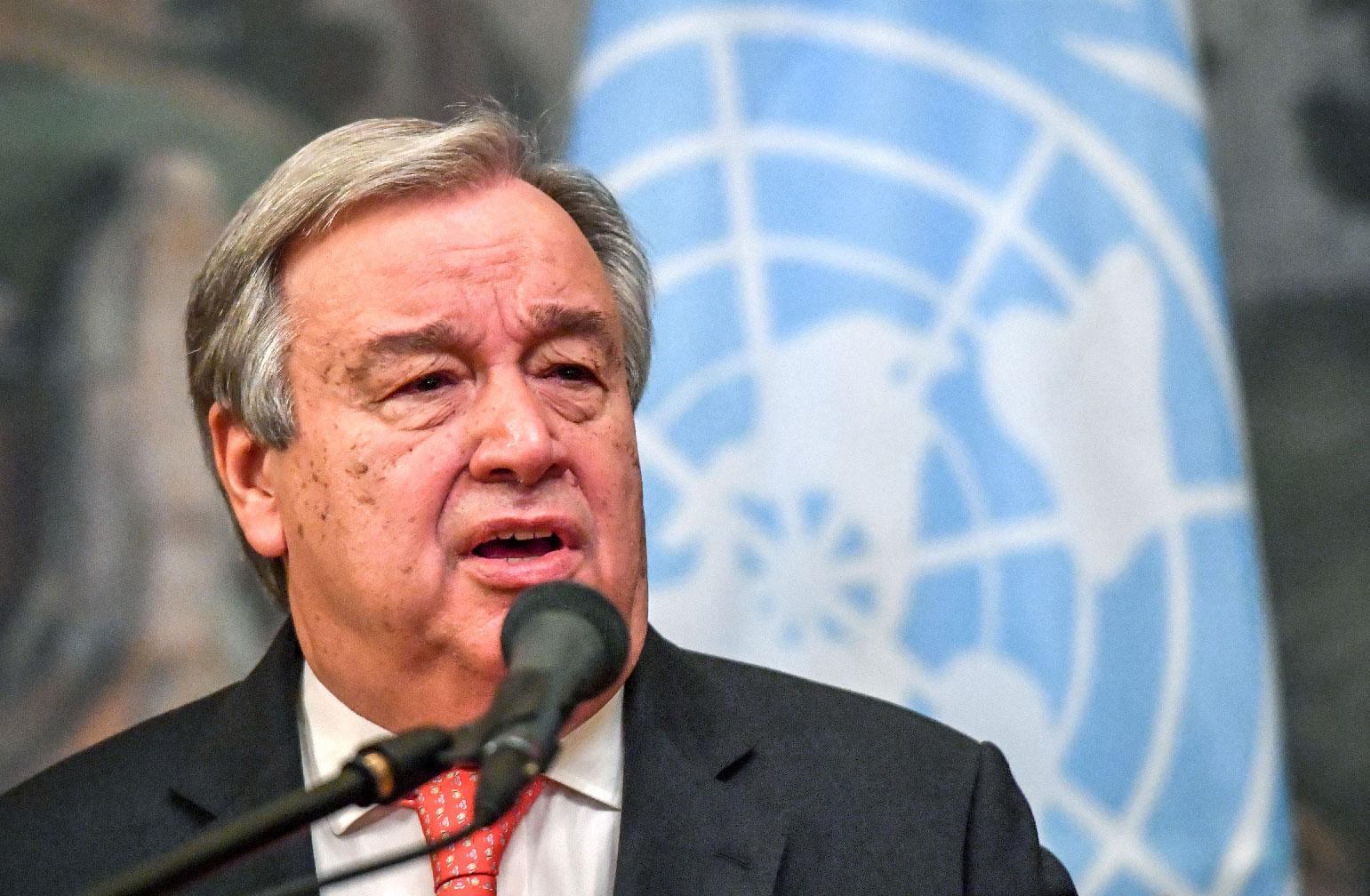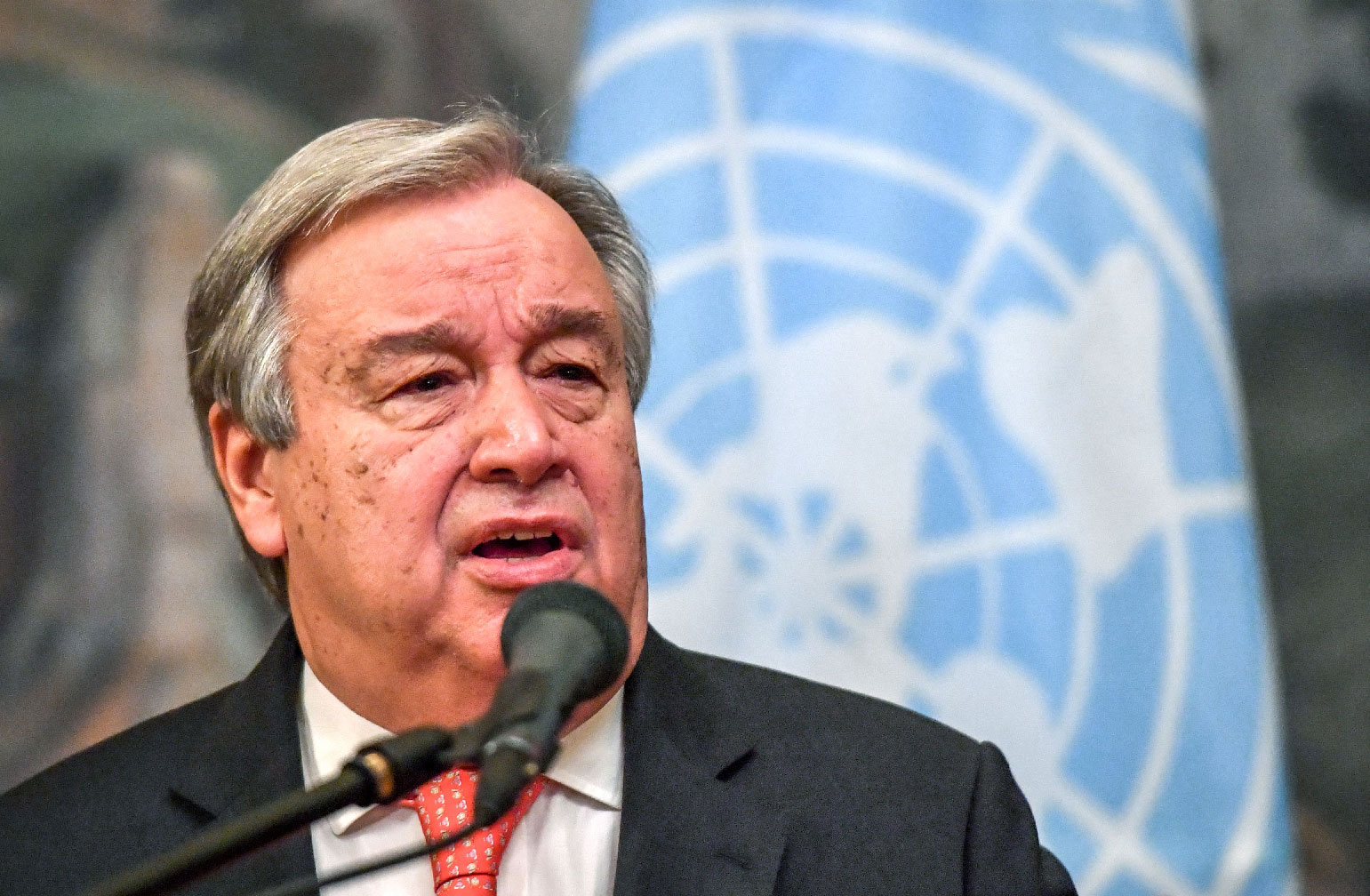UN chief suggests measures to protect Palestinians
LONDON - The protection of Palestinian civilians could be improved by the deployment of UN-mandated armed forces or unarmed observers, a beefed-up UN civilian presence or expanded UN assistance, Secretary-General Antonio Guterres wrote in a report on Friday.
The United Nations General Assembly requested the report in a resolution adopted in June that condemned Israel for excessive force against Palestinian civilians and denounced the firing of rockets from Gaza into Israeli civilian areas, but did not mention Hamas, the Islamist group that controls Gaza.
The resolution asked for proposals to ensure "the safety, protection and well-being of the Palestinian civilian population under Israeli occupation, including ... recommendations regarding an international protection mechanism."
Guterres outlined four options, but he did not make a specific recommendation. He noted that all options would need the cooperation of both parties, a sustained cessation of hostilities and additional resources to ensure they were viable.
"The combination of prolonged military occupation, constant security threats, weak political institutions, and a deadlocked peace process provides for a protection challenge that is highly complex politically, legally and practically," he wrote.
Armed UN peacekeepers or armed forces from a group of like-minded states operating under a United Nations mandate could be deployed to offer physical protection, Guterres said. This option, however, would need a Security Council mandate and the United States, a close ally of Israel, would likely wield its veto.
A UN or non-UN civilian observer mission could be deployed "with a specific mandate to report on protection and well-being issues and provide local mediation," Guterres said. This would also need a UN-mandate.
A third option could be expanding current UN programs and development and humanitarian aid to address the needs of Palestinian civilians more effectively and strengthen Palestinian institutions, he wrote.
The final option could be to send additional UN human rights, coordination and political officers to boost monitoring and reporting on the situation and increase the U.N.'s visibility, Guterres said.
The General Assembly resolution requesting the report was adopted with 120 votes in favor, eight against and 45 abstentions. It was put forward in the General Assembly after the United States vetoed a similar resolution in the 15-member UN Security Council.
"The best way to ensure the safety and protection of the Palestinian civilian population is still the negotiation of a comprehensive, just and final settlement of the Arab-Israeli conflict," Guterres said.
Guterres' comments came as tensions continue to flare between the Israeli army and Palestinians in the blockaded Gaza Strip.
Israeli troops killed two Palestinians and wounded scores of others taking part in weekly border protests on Friday, medics said, as Egyptian mediators tried to clinch a truce deal that would calm the impoverished enclave.
In Jerusalem's Old City, another area that Palestinians want for a future state, Israeli police said they shot dead a Palestinian who attacked them with a knife after leaving a mosque complex.
After a more than four-month surge in confrontations over the Gaza Strip border, Israel this week eased its clampdown on the enclave's commercial traffic and fishing. Cairo said it was finalising details of a longer-term accommodation between Israel and the dominant Palestinian Islamist group Hamas.
Some 20,000 people participated in Friday's protests, which took place a few hundred meters from the fence, though dozens came closer, with some rolling burning tyres, witnesses said.
Medics said Israeli gunfire killed two men and wounded at least 270 other Palestinians, 50 of them with live bullets.
An Israeli army spokeswoman said troops had responded with "riot-dispersal means" to prevent breaches of the border.
Friday's deaths brought to 170 the number of Palestinians killed by Israeli forces since the weekly protests began on March 30. The campaign is pressing for rights to land that Palestinians lost to Israel in the 1948 war of its foundation, and for an end to the Israeli-Egyptian blockade of Gaza.
Anger in Gaza has also been stoked by funding cuts by the Western-backed administration of Palestinian President Mahmoud Abbas, which dominates the West Bank and is the rival of Hamas, which runs Gaza. Their efforts at agreeing on a power-sharing unity deal with Egyptian mediation have not borne fruit.
Cairo had no immediate comment on Friday's incidents.
Hamas official Izzat Reshiq said the group, and other Palestinian factions, concluded a round of talks with Egyptian security officials over a possible truce with Israel and that further talks were scheduled for later this month.
"Efforts will resume after the holiday of Eid Al-Adha," Reshiq said on Twitter, referring to a Muslim festival that begins on Aug. 21 and ends on Aug. 24.
Israel sees the Gaza protests as a bid by Hamas, against which it has fought three wars in the last decade, to use civilians as cover for cross-border attacks. Hamas denies this.
Separately, Israeli police said they were attacked on Friday by a knife-wielding man after he emerged from a complex housing Al Aqsa mosque, Islam's third-holiest shrine, in East Jerusalem.
The man was shot dead, police said, describing him as a resident of an Israeli Arab town where pro-Palestinian sympathies are strong. CCTV video from the scene showed a man lunging at a police trooper with a knife, but not what followed.
Palestinians said that, after the incident, Israeli authorities barred Muslim worshippers from Al Aqsa mosque.
"This is a grave escalation that may lead to unpredictable consequences," Abbas said in a statement carried by the official Palestinian news agency Wafa.



